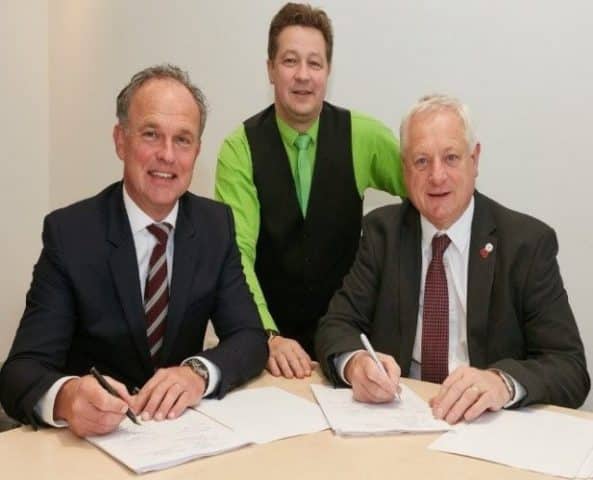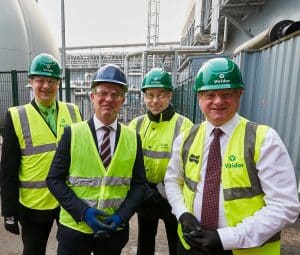
Pioneering carbon capture process to create low carbon fuels from landfill gas
-
Dunbar production could offset 34,000 truck miles a year
-
Process could potentially generate a carbon saving of around 236,000 tonnes a year across Viridor’s 10 landfills
-
Innovative technology from CarbonOro is an ‘incredibly energy-efficient’ separation process
Pioneering technology to enable carbon capture and use at the Dunbar landfill site in Scotland will be commissioned next summer (2020) in a £2m innovation project. Dutch company and WBA member CarbonOro has received the order from landfill gas specialist Viridor to deliver the installation.
The innovative absorption process developed by CarbonOro is substantially more energy efficient than prevailing systems, separating the CO2 from the landfill gas at 80C rather than the current standard of 140C and above.
This means the system could potentially run on hot water instead of steam. Hot water – residual heat from condensed steam – is typically abundant and available for free in industrial installations. The system can operate at such low temperatures thanks to CarbonOro’s specially developed amine solution (see here for a detailed description of the process).
Viridor’s head of technology Marcus Du Pree Thomas describes the process of stripping and low temperature regeneration of CO2 as incredibly efficient.
Mr Thomas said, “This is an incredibly efficient process with the methane gas cleaned to fuel grades in a matter of minutes and a landfill site like Dunbar, currently producing over 2,000m3/hr of gas, capable of creating transport fuel which would replace the fossil fuel for over 34,000 truck miles per year.”
 Essential for our sector to develop new technologies
Essential for our sector to develop new technologies
The captured CO2 will be harnessed for third party applications, in agriculture and chemical/manufacturing industries, while the biomethane will be converted to transport fuels, bio-CNG or LNG (compressed or liquid natural gas). Mr Thomas said the Dunbar plant alone could generate a carbon saving of 380 tonnes a year compared to diesel and when fully integrated.
Viridor MD Phil Piddington said, “Viridor is committed to working with companies like CarbonOrO to develop sustainable solutions for the management of landfill gas. With the natural life of incentives [in the UK], such as landfill gas renewable obligation certificates (ROCs), coming to the end in 2026/7, it is essential for our sector to develop new technologies and applications.
“CarbonOrO is a company committed to mitigating climate change by using landfill gas as a source of renewable energy. This is entirely in keeping with Viridor’s ethos of putting waste to work and creating valuable resources which actively help the UK achieve its environmental, resource and energy efficiency ambitions. Converting landfill gas into transport fuels is exactly the right vehicle for realising these goals.”
If commercially successful, Viridor plans to adopt CarbonOro’s innovative process across its portfolio of 10 landfill sites, which would deliver potential carbon savings of 236,000 tonnes a year.
CarbonOrO General Manager Pieter Verberne said, “We are very excited about this landmark innovation project which recognises the value of Viridor’s Dunbar landfill and CarbonOrO’s gas-cleaning process. CarbonOrO welcomes the sustainable and profitable optimising of landfills.”
He said: “Thank you Viridor for sharing our vision on the potential of waste. The Dunbar project is the ultimate demonstration of this vision. The gas-cleaning plant will be integrated with existing facilities on site. This will allow for driving CarbonOrO’s already energy-efficient- process with waste heat from Viridor’s nearby ERF.”

